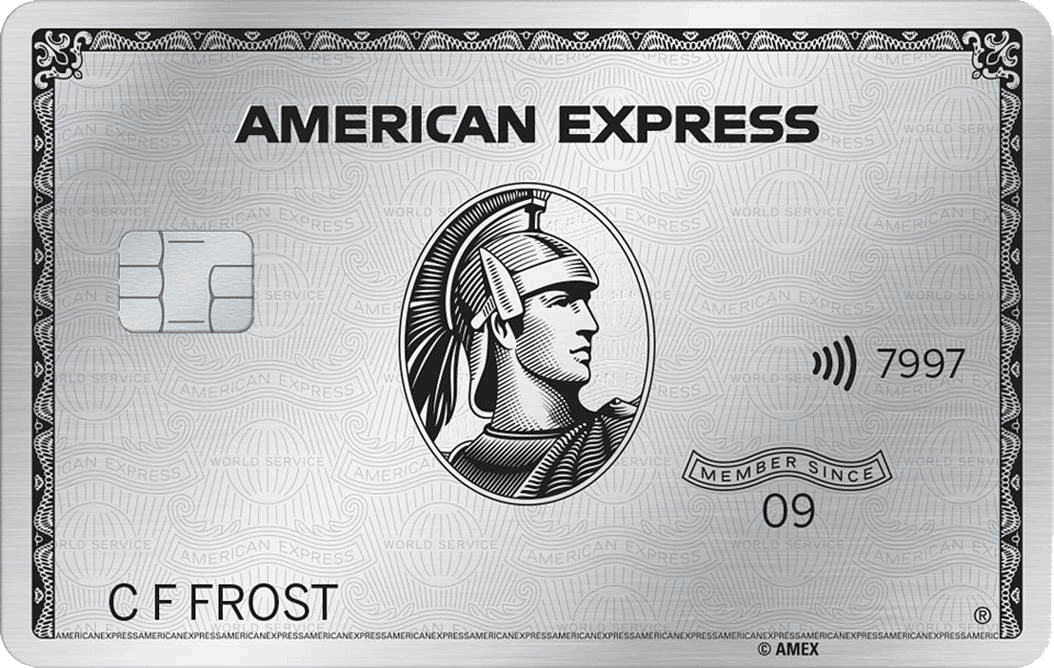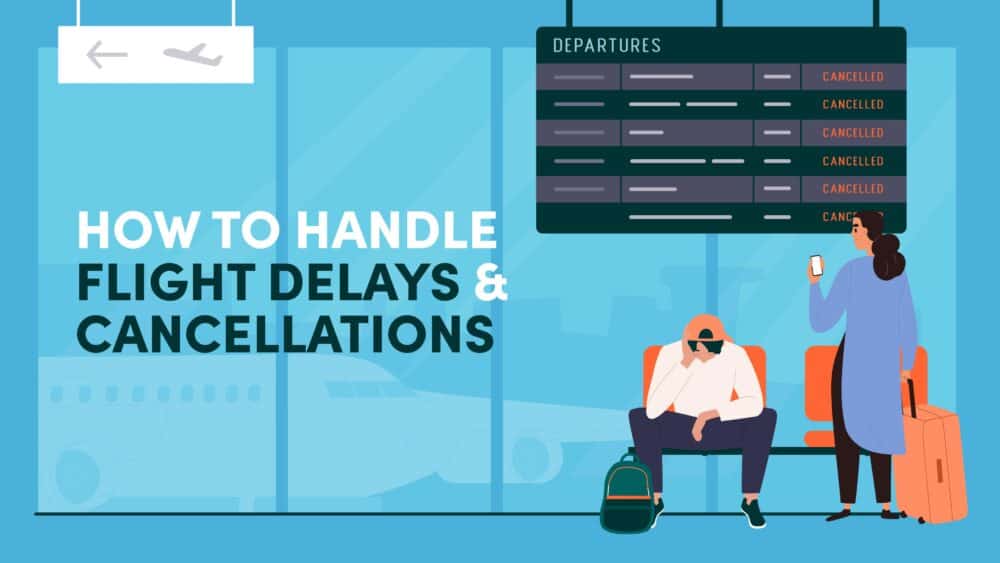
10xTravel is part of an affiliate sales network and receives compensation for sending traffic to partner sites, such as CreditCards.com. This compensation may impact how and where links appear on this site. This site does not include all financial companies or all available financial offers. Terms apply to American Express benefits and offers. Enrollment may be required for select American Express benefits and offers. Visit americanexpress.com to learn more.
Note: Some of the offers mentioned below may have changed or may no longer be available. The content on this page is accurate as of the posting date; however, some of our partner offers may have expired. You can view current offers here.
As much as we’re encouraged to embrace the unknown, it’s also nice to be financially prepared for it.
Unpredictability goes hand in hand with travel. While we usually think of the amazing things we’re going to eat, see and experience when traveling, it’s important to consider what can go wrong while we’re out in the big, bad world.
Luckily, with the right credit card to hand, you don’t need to spend much time pondering about what could go wrong.
Some of the best credit cards come with a range of travel insurance perks, from car theft and damage protection, trip delay protection, lost baggage protection and delay coverage, to emergency evacuation insurance and much more.
Let’s cover the main types of credit card travel insurance offered by travel rewards cards.
How Does Credit Card Travel Insurance Work?
Credit card travel insurance protects you against the unpredictability of travel.
Common credit card travel insurance perks include:
- Car rental insurance
- Trip delay insurance
- Trip cancellation and interruption insurance
- Emergency medical insurance
- Baggage loss and delay insurance
These credit card benefits are complimentary and are offered by credit card companies, often in partnership with an insurance firm.
There’s no need to formally enroll in these insurance plans to be compensated. You typically just need to cover the costs of a covered situation with your eligible card.
For example, you’ll need to pay for your rental car using your credit card to activate rental car insurance. If you pay using another card, you wouldn’t be eligible for travel coverage.
These credit card travel insurance policies tend to extend to immediate family members and each policy has its own set of specific conditions, limitations and exclusions. It’s therefore crucial to read your card agreement carefully.
If an incident occurs, you’ll first need to contact your benefits administrator, describe the incident and wait for them to send you the correct forms to file. You will need to fill out and submit these forms alongside any other evidence of the claim you’re making.
Credit card travel insurance has the potential to save you a significant amount of money on premiums and deductibles and makes traveling safely far simpler.
Types of Credit Card Travel Insurance Coverage
Let’s now run through the most common types of credit card travel insurance perks you’re likely to come across. We’ll also provide links to other articles covering the best credit cards with travel insurance
Car Rental Insurance
Credit card rental car insurance covers you up to a specific dollar amount in the event of collision damage or theft, when you charge the entire rental cost to your travel insurance credit card.
Reimbursement claim maximums are typically between $75,000 and $100,000. In most cases, you’ll be reimbursed for the actual cash value of the car.
Credit card rental car insurance can cover the costs of towing and loss-of-use charges as well as reimburse the cost of theft and damage.
The coverage period varies depending on the card issuer but is typically between 14 and 31 consecutive days. While some card issuers cover car rentals in every country, others exclude certain countries such as Australia, Ireland, Israel, Italy, Jamaica and New Zealand.
Likewise, it’s important to understand that there are a substantial number of exclusions to be mindful of. These include but aren’t limited to:
- Exotic, expensive or antique vehicles. For example, Chase considers the following vehicles exotic: Alfa Romeo, Aston Martin, Bentley, Corvette, Ferrari, Jaguar, Lamborghini, Lotus, Maserati, Maybach, McLaren, Porsche, Rolls Royce and Tesla.
- Vehicles older than 20 years or that haven’t been manufactured in 10 years or longer, off-road vehicles, mopeds, motorcycles, cargo vans, custom vans, vans capable of seating more than eight passengers, trucks with a gross vehicle weight greater than 10,000 lbs and recreational vehicles
- Theft or damage due to intentional acts, or due to the driver(s) being under the influence of alcohol, intoxicants or drugs
- Wear and tear, gradual deterioration or mechanical breakdown
- Items not installed by the original manufacturer
- Damage due to off-road operation of the rental vehicle
- Theft or damage due to hostility of any kind, such as war
- Confiscation by authorities
While credit card rental car insurance usually provides secondary coverage, in some cases, it can also provide primary coverage.
Secondary rental car insurance coverage will kick in only after your primary insurance coverage has been exhausted. This is also why you should decline the collision damage waiver offered by the rental car company, as it will otherwise act as primary coverage and cost you more.
Generally speaking, primary rental car coverage received through a credit card saves you more compared to receiving primary coverage through a separate insurance plan. This is because, with a credit card, you have no premiums that will increase as a result of an accident. Furthermore, credit card car rental insurance tends to be free of hefty deductibles, saving you even more.
Keep in mind that, in certain instances, secondary rental car coverage can act as primary coverage. If your primary car insurance policy doesn’t cover you abroad, your credit card rental insurance will act automatically as primary coverage. Similarly, if you don’t have any other car insurance plan—perhaps because you don’t own a car—then your credit card car rental insurance will also act as primary coverage.
The Chase Sapphire Reserve®, Chase Sapphire Preferred® Card and Capital One Venture X Rewards Credit Card all offer up to $75,000 in primary coverage for theft or collision damage in the U.S. and abroad.
Check out 10xTravel’s full guide to credit card car rental insurance to select the best card for you.
Earn 100,000
bonus points + $500 Chase Travel℠ promo credit
after you spend $5,000 on purchases in the first 3 months from account opening.
Annual Fee: $795
Chase Sapphire Preferred® Card
75,000
bonus points
after you spend $5,000 on purchases in the first 3 months from account opening.
Annual Fee: $95
Capital One Venture X Rewards Credit Card
75,000
Venture Miles
after you spend $4,000 in purchases in the first 3 months.
Annual Fee: $395
Trip Delay Insurance
Trip delay credit card travel insurance reimburses you for the costs incurred due to any common carrier delay caused by a covered reason.
Covered reasons for trip delay include:
- Inclement weather
- Terrorist action, including highjacking
- Equipment failure on the part of the common carrier, such as mechanical issues
- Stolen or lost travel documents, such as passports
An example of a standard trip delay insurance policy would be reimbursement of up to $500 per ticket for delays greater than six hours.

To be eligible for coverage, you’ll need to charge at least a portion, if not the entire, cost of your common carrier fare to your eligible credit card. For instance, Chase and Capital One require you to charge a portion of the fare to your card only while Amex requires you to charge the entire cost of the fare to your card.
Trip delay insurance can come in especially handy when you experience an uncontrollable flight delay that the airline won’t cover.
Trip delay insurance reimburses reasonable expenses including accommodation, meals, toiletries and personal items. However, your purchases must be considered both reasonable and essential to qualify. For example, staying in a five-star resort when a cheaper motel is available may make you ineligible for reimbursement.
Similarly, trip delay insurance won’t cover delays caused by failure on your part, such as simply missing your flight.
To file a trip delay insurance claim, you’ll need to first contact your benefit administrator within 30 to 60 days of the incident. You’ll then need to file claim forms and submit the following documents:
- An official statement from your common carrier clarifying that your trip was delayed
- Receipts of expenses incurred as well as evidence that the fare was charged to an eligible card
- Evidence of your common carrier tickets
The Chase Sapphire Reserve offers up to $500 per ticket for delays greater than six hours while the United℠ Business Card offers up to $500 per ticket for delays greater than 12 hours.
The Delta SkyMiles® Reserve American Express Card, Hilton Honors American Express Aspire Card and The Platinum Card® from American Express also offer up to $500 per trip for delays greater than six hours with a maximum of two claims per 12-month period.¹
Check out 10xTravel’s full guide to credit card trip delay travel insurance to select the best card for you.
Delta SkyMiles® Reserve American Express Card
100,000
Bonus Miles
after you spend $6,000 in eligible purchases on your new Card in your first 6 months of Card Membership.
Annual Fee:
$650

Hilton Honors American Express Aspire Card
175,000
Hilton Honors Bonus Points
after you spend $6,000 in purchases on the Card within your first 6 months of Card Membership. Offer ends 8/13/2025.
Annual Fee:
$550
The Platinum Card® from American Express
You may be eligible for as high as 175,000
Membership Rewards® Points
after you spend $8,000 in eligible purchases on your new Card in your first 6 months of Card Membership. Welcome offers vary and you may not be eligible for an offer. Apply to know if you’re approved and find out your exact welcome offer amount – all with no credit score impact. If you’re approved and choose to accept the Card, your score may be impacted.
Annual Fee:
$695
Trip Cancellation and Interruption Insurance
Trip cancellation and interruption travel insurance can cover you for certain non-refundable expenses, in the event your trip is cut short by a covered reason.
Covered reasons for trip cancellation and interruption insurance can include severe weather, terrorist action, accidental bodily injury, severe illness and natural disasters.

The definition of “non-refundable expenses” can vary by card issuer.
In most cases, this will provide reimbursement of your common carrier fare. Some card issuers go even further, covering the cost of new common carrier tickets (to rejoin your original trip by the most direct route), as well as reimbursing you for prepaid activities that were booked as part of a travel package.
Trip cancellation and interruption insurance is particularly valuable when it comes to uncontrollable flight cancellations and delays. Airlines aren’t required to compensate you for delays or cancellations that are considered out of their control, such as severe weather or unforeseen mechanical issues. However, trip cancellation and interruption can come to the rescue in such situations, reimbursing you for non-refundable expenses.
Keep in mind that exclusions for trip cancellation and interruption travel insurance include but aren’t limited to:
- Loss resulting from intentional acts and self-harm
- War
- Trips longer than a certain number of days (card issuer dependent)
- Traveling after week 26 of pregnancy
- Being under the influence of narcotics or any other non-prescription substance
- Loss resulting from felony
To make a claim, you’ll need to contact your benefit administrator within 20 to 60 days following the incident. They’ll send you forms that you’ll need to complete and submit alongside evidence of your trip cancellation or interruption.
Evidence can include your credit card account statement indicating that you charged your common carrier fare to your card, a statement from the common carrier confirming the cancellation and a physician’s statement confirming your injury or illness, among other documents.
The Chase Sapphire Reserve offers some of the best trip cancellation and interruption travel insurance available. You and your immediate family members can be reimbursed by up to $10,000 per person and $20,000 per trip.
The Platinum Card from American Express also offers solid trip cancellation and interruption travel insurance, sharing the same claim limits as the Chase Sapphire Reserve. However, the Amex Platinum card also reimburses you for certain costs not covered under Chase’s policy.²
Check out 10xTravel’s full guide to trip cancellation and interruption travel insurance to find the best card for you.
Emergency Medical Insurance
Credit card emergency medical travel insurance can reimburse you for the costs of emergency medical treatments.
This credit card travel insurance perk is split into separate types of coverage, based on the type of emergency situation. Most commonly, you’ll find that credit cards offer a combination of the following emergency medical travel insurance plans:
- Emergency medical and dental coverage
- Emergency evacuation and transportation coverage
- Common carrier travel insurance
Some cards, like the Chase Sapphire Reserve, offer all three of these medical travel insurance plans. Other cards typically offer one or two of these perks only.
Emergency medical and dental coverage reimburses you for the costs of medically necessary procedures endorsed and performed by a physician, dentist or hospital for emergency injuries or illnesses. This can include the costs of ambulance services, anesthetics, x-ray examinations or treatments, laboratory tests, medicine and drugs, the services of legally qualified medical professionals and hospital stays.

The Chase Sapphire Reserve offers up to $2,500 in emergency medical and dental coverage with a $50 deductible.
Emergency evacuation and transportation coverage reimburses you for the costs of evacuation and transportation if it’s deemed medically necessary by a physician.
An important point to understand with emergency evacuation and transportation insurance is that you must contact your benefit administrator immediately to get their approval for evacuation. Without their approval, you won’t be eligible for reimbursement. This insurance can also cover the cost of repatriation of remains.
The Bank of America® Premium Rewards® Elite card offers up to $100,000 for emergency evacuation and transportation costs as well as up to $10,000 in reimbursement for the repatriation of remains.
Both emergency evacuation and emergency medical and dental insurance tend to exclude the following from coverage:
- Injuries resulting from adventure sports
- Intentional self-harm
- Illegal actions
- War
- Injuries sustained or illnesses contracted in certain countries deemed high-risk
Common carrier travel insurance is the most common type of emergency medical insurance offered by credit cards. This insurance perk covers you for accidental loss of life, limbs, sight, speech and hearing when entering, exiting or traveling with a common carrier. In some cases, such as with Capital One, it can also cover you shortly before and after traveling with a common carrier, as long as you charge the entire fare to your card.
Common carrier insurance tends to cover you up to anywhere between $250,000 and $1,000,000. You usually receive a percentage of the maximum payout depending on the type of injury suffered. For instance, losing a thumb may make you eligible for a 25% payout while losing sight plus both your hands could make you eligible for the full payout.
Exclusions commonly seen with common carrier insurance can include:
- Injuries resulting from intentional self-harm and suicide
- Injuries resulting from extreme sports such as parachuting and scuba diving
- Secondary injuries or illnesses, such as emotional trauma
- Injuries received or illnesses contracted in ineligible countries
- Injuries resulting from war or military duty
- Participation in any professional sporting activity for which you received a salary or prize money
To make a claim, you’ll need to contact your benefit administrator usually within 20 days of the loss occurring. You’ll then need to file the correct forms and submit the following evidence of loss:
- Your travel itinerary
- Credit card account statement with evidence of the common carrier fare charge
- Police report confirming the accident
- Receipts for any hospital bills or other services
- Proof of costs that have already been reimbursed by your primary insurance provider (if applicable)
Check out 10xTravel’s full guide to credit cards with travel medical insurance to find the best card for you.
Baggage Loss and Delay Insurance
If a common carrier delays your baggage, credit card baggage delay insurance can reimburse you up to a specific dollar amount for the purchase of essential items.
Similarly, baggage loss insurance reimburses you for the actual cash value of your lost items—original price minus depreciation—if a common carrier loses your baggage.
For example, the Chase Ink Business Preferred® Credit Card reimburses you up to $100 per day for a maximum of five days when your baggage is delayed for more than six hours and will reimburse you up to $3,000 if your baggage is lost.
What’s considered an essential item can vary between card issuers. However, clothing and toiletries are among the typical items considered essential.

For baggage delay insurance, the following high-value items are excluded from coverage:
- Jewelry and watches
- Electronics such as cameras
- Artificial dental products, such as dental bridges or dentures
- Checks, documents, securities and money
However, electronics as well as jewelry and watches are covered under baggage loss policies, usually with their own sub-limits. For example, Chase will reimburse you up to $500 for jewelry and watches, and up to another $500 for electronics, under its total limit of $3,000.
To receive coverage, you’ll need to charge at least a portion, if not all, of your common carrier fare to your eligible credit card. You’ll also need to cover your essential item purchases using your card.
To file a claim, you’ll need to contact your benefit administrator, complete and submit the correct forms, and provide the following supplementary documents:
- Your travel itinerary
- A copy of your credit card statement, with evidence of the common carrier fare charge
- Written confirmation from the common carrier of the baggage delay or that a lost baggage report was filed
- Written settlement or denial from the common carrier
- Copies of receipts for essential item purchases exceeding $25 for baggage delay reimbursement or for the purchase of replacement items for lost baggage reimbursement (Chase)
- Copies of original receipts
Check out 10xTravel’s full guide to credit cards with lost luggage insurance to find the best card for you.
What Isn’t Covered by Your Credit Card
As already mentioned, credit card travel insurance won’t cover you in every situation.
Typical exclusions to most credit card travel insurance policies include but aren’t limited to:
- Exceeding the maximum trip coverage duration
- Losses sustained in countries deemed high-risk
- Losses due to war or insurrection (excluding terrorism)
- Losses due to felonious action on your part
- Losses due to adventure or extreme sports
- Losses due to intentional self-harm, including suicide
- Secondary injuries or illnesses such as emotional trauma and bacterial infections
- Losses incurred during a time in which you were under the influence of alcohol or narcotics
- Routine medical operations
- Travel with the intent of receiving medical treatment
When to Buy a Separate Travel Insurance Plan
While credit card travel insurance is highly valuable and can save you potentially hundreds of dollars, it might be wise to take out a separate insurance plan in some cases. This is particularly the case when it comes to emergency travel medical insurance.
For example, suppose you want to participate in a certain adventure sport—such as rock climbing—or go to a country deemed high-risk. In that case, a separate insurance plan will be able to cater to your needs and provide you with higher coverage limits.
Perhaps your card already comes with trip delay and interruption insurance, including evacuation, but the medical coverage isn’t as generous. If you are happy with the trip delay and interruption coverage, you can supplement your credit card’s insurance policy by buying separate travel insurance that covers emergency medical expenses.
On the other hand, if you’d rather not worry about which cards you used to book parts of your trip or if you aren’t sure you’re going to keep the card long term, it might be easier to buy a separate policy, which can be per trip or annual.
You can easily get a free quote for travel insurance plans through 10xTravel’s affiliate service.
Do All Credit Cards Automatically Have Travel Insurance?
No, not all cards provide travel coverage for travelers.
Travel insurance perks tend to be a feature of premium travel rewards credit cards. That said, many credit cards with annual fees of just $95—and in some instances, cards with $0 annual fees—offer solid travel insurance policies.
Generally speaking, Chase tends to be the top card issuer when it comes to providing a comprehensive range of travel insurance protections.
Similarly, the higher the annual fee is, the higher the travel insurance coverage limits tend to be (although there are some exceptions to this rule).
How to Choose a Credit Card with the Best Travel Insurance
Credit card travel insurance is often overlooked as a card perk. Yet, travel insurance perks have the potential to save you hundreds—if not thousands—of dollars when things go south.
They also save you on insurance premiums, hefty deductibles and separate insurance plans.
The more you travel, the more value you can reap from credit card travel insurance perks.
You should start by identifying which credit card travel insurance perks you value the most. For example, if you never rent a car abroad, then car rental insurance won’t be a top priority. Alternatively, if you always fly with checked baggage, a credit card with baggage loss and delay insurance will be highly valuable.
After you’ve decided on your priorities, you can begin searching for potential credit cards.
Once you’ve narrowed your selection down, you’ll want to select a card with a comprehensive benefits package that you can use to the maximum.
If you’re a frequent flyer with a specific airline, that might make a co-branded airline card highly valuable. Or if you always stay with Hilton, for instance, a co-branded Amex Hilton card could be well suited to your goals.
Alternatively, if you’re looking to stay flexible, a general travel rewards credit card, such as the Chase Sapphire Reserve, Chase Sapphire Preferred card, Amex Platinum or Capital One Venture X Rewards Credit Card could be a much better fit.
Keep in mind that the more you can benefit from the card’s bonus spending categories and the more you can use all of its perks, the easier it will be to offset its annual fee. So prioritize perks and travel insurance benefits, and make the annual fee the last part of the calculation.
Secure Your Journey with Credit Card Travel Insurance
When travel plans go awry, you want to ensure that you’re covered.
Having credit card travel insurance gives you protection and peace of mind. This can be the difference between a minor disruption vs. a ruined vacation.
Decide which travel insurance benefits suit you the most and select a card that best fits your spending and travel goals. Lastly, make yourself aware of your card agreement’s terms and conditions.
That way, you’ll be able to enjoy your next vacation knowing you’re prepared for the worst.
¹ Up to $500 per covered trip that is delayed for more than 6 hours; and 2 claims per eligible card per 12 consecutive month period. Eligibility and Benefit level varies by Card. Terms, Conditions and Limitations Apply. Please visit americanexpress.com/benefitsguide for more details. Underwritten by New Hampshire Insurance Company, an AIG Company.
² The maximum benefit amount for Trip Cancellation and Interruption Insurance is $10,000 per Covered Trip and $20,000 per Eligible Card per 12 consecutive month period. Eligibility and Benefit level varies by Card. Terms, Conditions and Limitations Apply. Please visit americanexpress.com/benefitsguide for more details. Underwritten by New Hampshire Insurance Company, an AIG Company.
New to the world of points and miles? The Chase Sapphire Preferred® Card is the best card to start with.
With a bonus of 75,000 bonus points after you spend $5,000 on purchases in the first 3 months from account opening. , 5x points on travel booked through Chase Travel℠ and 3x points on restaurants, streaming services, and online groceries (excluding Target, Walmart, and wholesale clubs), this card truly cannot be beat for getting started!
Editors Note: Opinions expressed here are author’s alone, not those of any bank, credit card issuer, hotel, airline, or other entity. This content has not been reviewed, approved or otherwise endorsed by any of the entities included within the post.













